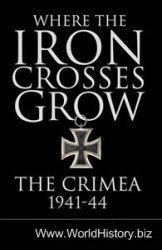George Gordon, earl of Aberdeen (1784-1860). British diplomat and statesman. Ambassador to Vienna in 1813; later prime minister from 1852 to 1855.
Amable-Guillaume-Prosper Brugui'ere, baron de Barante (1782-1866). French historian, writer and politician; prefect of the Loire-Inferieure between 1813 and 1815.
Michael Andreas Barclay de Tolly (1761—1818). Field-marshal, one of the architects of Napoleon’s defeat in 1812, and commander of the Russian army from the summer of 1813 to 1815.
Paul Barras (1755—1829). The leading member of France’s governing Directory from 1795 to 1799. Displaced by Napoleon, and henceforth one of his bitterest enemies.
Eugene de Beauharnais, viceroy of Italy (1781—1824). Napoleon’s stepson, the son of his first wife Josephine.
Jean-Baptiste Bernadotte, marshal of France, from 1818 king Charles XIVJohn of Sweden (1763—1844). A mediocre general but a very able politician, elected crown prince of Sweden in 1810.
Louis-Alexandre Berthier, marshal of France, prince of Neuchatel, prince of Wa-gram (1753—1815). Napoleon’s chief of staff, and his closest military collaborator.
Jerome Bonaparte, king of Westphalia (1784—1860). Napoleon’s youngest brother.
Joseph Bonaparte, king of Naples from 1806 to 1808, then of Spain fromi8o8 to 1813 (1768—1844). Napoleon’s older brother; commanded the defence of Paris in 1814.
Pauline Bonaparte, princess Borghese (1780—1825). Napoleon’s beautiful and dissolute youngest sister, and the most loyal of his siblings.
Ferdinand, count Bubna von Littitz (1768—1825). Austrian soldier and diplomat.
Friedrich Wilhelm, count Biilow von Dennewitz (1755-1816). Distinguished Prussian general, who played a leading role in the struggle against France between 1813 and 1815.
Jean-Jacques Regis de Cambaceres, duke of Parma (1753-1824). Arch-chancellor of the empire, in effect Napoleon’s prime minister.
Lazare Carnot (1753—1823). The greatest military organizer of the French Revolution; a republican opponent of Napoleon, but rallied to him on the allied invasion of France in 1814.
Pierre-Joseph Cambon (1754—1820). Important revolutionary politician, specializing in finance, and afterwards a republican opponent of Napoleon.
William, earl Cathcart (1755—1843). British soldier and diplomat. Ambassador to Russia from 1812 to 1820.
Armand de Caulaincourt, duke of Vicenza (1773—1827). Napoleon’s grand equerry, and from November 1813 his foreign minister.
Count Carl Clam-Martinic (1792—1840). Austrian soldier and statesman; Schwarzenberg’s aide-de-camp between 1812 and 1815.
Emmerich Joseph, duke of Dalberg (1773—1833). Franco-German diplomat and statesman, and a confidant of Talleyrand.
Geraud Duroc, duke of Friuli (1772—1813). Grand marshal of the palace to Napoleon, and his closest friend.
Agathon Jean Francois, baron Fain (1778—1837). Napoleon’s secretary.
Joseph Fouche, duke of Otranto (1759—1820). Leading revolutionary politician, later Napoleon’s minister of police from 1804 to 1810, and again in 1815.
Dominique-Joseph Garat (1749—1833). Leading revolutionary politician, later a republican opponent of Napoleon.
Friedrich Gentz (1764—1832). Writer and publicist, and Metternich’s closest adviser between 1812 and 1815.
Laurent, comte Gouvion Saint-Cyr, marshal of France (1764—1830). An able soldier, later a reforming minister of war under the restored Bourbons.
Henri Gregoire (1750—1831). Prominent revolutionary politician, champion of black and Jewish emancipation, later a republican opponent of Napoleon.
Karl August, prince von Hardenberg (1750—1822). Reforming Prussian statesman; chancellor from 1810.
Wilhelm von Humboldt (1767—1835). Prussian philosopher, linguist and statesman. Minister of education, 1809—10, then ambassador to Vienna, and Prussian representative at the Congress of Chatillon.
Jacques-Etienne Macdonald, marshal of France, duke of Tarentum (1765-1840). Of Scots Jacobite extraction; a mediocre commander, but widely respected for his honesty and outspokenness.
Auguste-Frederic Viesse de Marmont, marshal of France, duke of Ragusa (1774-1852). The youngest of Napoleon’s marshals, and particularly trusted by him.
Jean-Pierre Bachasson, comte de Montalivet (1766—1823). Napoleon’s interior minister from 1809 to 1814.
Jean-Victor Moreau (1763—1813). Successful French revolutionary general. Exiled to the United States in 1804 for conspiring against Napoleon; returned to Europe in July 1813.
Joachim Murat, marshal of France, kingof Naples (1767—1815). Napoleon’s best cavalry commander, and his brother-in-law.
Louis, comte de Narbonne-Lara (1755—1813). French soldier and diplomat; made ambassador to Vienna in March 1813.
Count Karl von Nesselrode (1780—1862). Russian diplomat, and Czar Alexander I’s chief foreign policy adviser between 1813 and 1815.
Michel Ney, marshal of France, duke of Elchingen, prince of the Moskowa (1769—1815). Famous for his courage, but an erratic commander.
Nicolas-Charles Oudinot, marshal of France, duke of Reggio (1767—1847). An extremely brave soldier, but of limited ability as a commander.
Etienne-Denis, baron Pasquier (1767—1862). French statesman; prefect of police of Paris from 1810 to 1814. Later made a duke, and the last chancellor of France.
Joseph, count Radetzky von Radetz (1766—1858). Chief of staff of the allied armies in 1813—14; later a field-marshal and the most successful Austrian commander of the nineteenth century.
Prince Andrei Razumovsky (1752—1836). Russian diplomat, ambassador to Vienna from 1792, and patron of Beethoven. Russian representative at the Congress of Chatillon.
Wilhelmina, duchess of Sagan (1781—1839). A wealthy and beautiful eastern European noblewoman, fascinated by politics, and Metternich’s mistress between 1813 and 1815.
Auguste, baron de Saint-Aignan (1770—1858). French soldier and diplomat; captured by Cossacks at Weimar in October 1813.
Anne Rene Savary, dukeof Rovigo (1774—1833). Napoleon’s minister of police from 1810 to 1814.
Emmanuel-Joseph Sieyes (1748-1836). Prominent revolutionary politician, later a republican opponent of Napoleon.
Johann Philipp, count von Stadion (1763-1824). Austrian diplomat, Metter-nich’s predecessor as foreign minister, and Austrian representative at the Congress of Chatillon.
Sir Charles Stewart, later marquess of Londonderry (1778-1854). British soldier and diplomat, suicidally brave and highly eccentric. Castlereagh’s halfbrother, in April 1813 appointed British minister to Berlin.
Karl Wilhelm von Toll (1777-1842). Quartermaster-general of the Russian army, and a close military adviser to Czar Alexander I.
Sir Robert Wilson (1777-1849). British general and later Radical politician; British liaison officer with the Russian and then the Austrian army between 1812 and 1814.
Ludwig Peter, prince Wittgenstein (1769-1843). Field-marshal, commander of the Russian army in the spring of 1813.
Johann David, count Yorck von Wartenburg (1759-1830). Veteran Prussian general who in 1812 played a decisive role in his country’s move from alliance to war with Napoleon.

Plate 1. Napoleon as first consul, by Antoine-Jean Gros.

Plate 2. Napoleon in March 1812, by Anne-Louis Girodet.

Plate 3. Armand de Caulaincourt, 1808, by Jean-Baptiste Isabey, from the Austerlitz Table.

Plate 4. Prince Metternich, 1815, by Sir Thomas Lawrence.

Plate 5. Marie-Louise and the king of Rome, by Francois Gerard.

Plate 6. Louis-Alexandre Berthier, 1808, by Jacques Augustin Catherine Pajou.

Plate 7. Alexander I, 1814, by Francois Gerard.

Plate 8. Francis I, 1841, by Anton Einsle.

Plate 9. Prince Carl Philipp zu Schwarzenberg, by Francois Gerard.

Plate 10. Count Carl Clam-Martinic, portrait at Burg Clam, Austria.

Plate 11. Prince Bliicher, engraving from a sketch by Major General Birch Reynardson, 1814.




 World History
World History



![The Battle of Britain [History of the Second World War 9]](https://www.worldhistory.biz/uploads/posts/2015-05/1432582012_1425485761_part-9.jpeg)





